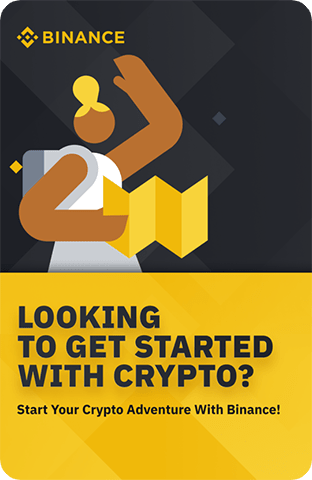A developing field called “smart contract dispute resolution” aims to offer alternative dispute resolution procedures for smart contract-based transactions. The need for ADR solutions that decrease the time and expense needed to resolve disputes between parties in different nations has become evident as cross-border transactions grow more widespread.
We will examine smart contract dispute resolution in this article, including what it is, why it is necessary, and what some decentralized financial organizations are doing to assist cryptocurrency users who have disagreements about transactions as a result of smart contracts on a blockchain.
In a Nutshell
- Smart contracts are blockchain-based programs or scripts that automatically carry out predetermined transactions.
- Smart contract dispute resolution uses blockchain technology and smart contracts to settle international disputes involving blockchain-related activity.
- Decentralized justice platforms are blockchain-based software programs that make it easier to settle legal issues arising from transactions carried out using smart contracts through arbitration or mediation.
- Kleros is a startup that has developed a decentralized application (dApp) based on the Ethereum platform that chooses vetted jurors at random to settle disputes.
- Unless otherwise configured, smart contracts are irreversible once they are executed.
- The agreement between the two parties constitutes the contract, not the smart contract itself. The smart contract program just carries out the agreed-upon actions.
Understanding Smart Contract Dispute Resolution
Smart contracts are programs or scripts written on a blockchain. These programs can autonomously and seamlessly execute many low-level agreed transactions.
Existing contract laws and dispute resolution measures – at least in the U.S. and most developed countries – adequately cover underlying contracts involving the use of smart contracts within their borders.Large companies expanding around the world often develop expansion plans that include dispute resolution in the countries to which they have expanded; typically, they already have policies and programs in place to deal with customer and consumer dissatisfaction. The concern then is how to resolve disputes between smaller companies and consumers in different countries.
Smart contracts have the potential to revolutionize the way we resolve disputes, making the process faster, cheaper, and more transparent.
Vitalik Buterin
One of the most common misconceptions regarding smart contracts is that they are contracts. Smart contracts are programs written on a blockchain that execute an agreement when certain conditions are met. They are not contracts, but the means by which a contract is executed.
Applications built on blockchain that facilitate the resolution of contractual disputes over transactions implemented using smart contracts through arbitration or mediation are called decentralized justice platforms.
Therefore, the contract law of your nation governs the resolution of a contractual dispute. However, the global marketplace is more accessible than ever before. Technology has made it possible for cross-border transactions to occur, raising the possibility of cross-border disputes where the laws may be very different.
Smart Contract Dispute Resolution Objectives
Smart contract dispute resolution seeks to resolve cross-border disputes related to blockchain activities using blockchain technology and smart contracts. The technology is still evolving but is promising because it eliminates the need to involve other parties in litigation. The technology also avoids existing obstacles to resolving cross-border disputes.
The concept works like this: you purchase goods or services using a decentralized application (dApp). A smart contract executes the transaction when both parties agree that the conditions have been met. An ADR platform is linked to the transaction and allows either party to challenge it if they are not satisfied.
You would find the dispute transaction button on the dApp, and a smart contract would execute dispute resolution actions. The blockchain network would select a group of mediators, arbitrators, or judges based on their expertise. They would cast their votes for the judgment, and a smart contract would execute the action that the group had voted for.
A startup, Kleros, has created a dApp based on the Ethereum platform. Their platform is an alternative dispute resolution app that randomly picks vetted jurors. They are selected based on the cryptocurrency they have wagered and their qualifications in the field of dispute. In this case, betting is the act of offering cryptocurrency as collateral for the opportunity to be picked as a juror.Jurors are paid for their services. The process determines how much they are paid, and the smart contract determines which party to the litigation pays the fee.
The judges have a certain number of days to examine the dispute and cast their vote anonymously. If their vote coincides with the majority decision, they receive a payment. If they vote against the rest of the group, they receive a portion of their wagered cryptocurrency. According to Kleros, this encourages honest voting.Kleros allows for a decision appeal process, but this may not be true for all RAL platforms that emerge. Platforms are likely to have different rules and fees, and these platforms are likely to change and evolve over time.
Wrap Up
In conclusion, the topic of smart contract dispute resolution is still in its infancy but aims to offer alternatives to traditional legal processes for transactions involving smart contracts. The need for ADR solutions that decrease the time and expense needed to resolve disputes between parties in different nations has become evident as cross-border transactions grow more widespread. Blockchain technology and smart contracts are being used by decentralized judicial systems like Kleros to offer a faster and more affordable method of dispute resolution.
FAQs

Smart contracts are self-executing programs embedded in a blockchain. Smart contract dispute resolution refers to alternative dispute resolution procedures for transactions using smart contracts.
Smart contracts do away with the necessity for exchanges, but when there are legal differences, there may still be cross-border disputes. ADR techniques shorten the amount of time and money needed to settle disputes between parties in different nations.
No. Unless otherwise configured, smart contracts are irreversible once they are executed.
The tool that performs the underlying contractual conditions, not smart contracts themselves, is what constitutes the legal contract. The contract is the understanding between the two parties, and the smart contract software just carries out the agreed upon actions.
Contract law of the relevant jurisdiction applies to issues involving smart contracts. Solutions for international dispute resolution in smart contract transactions are still being created.
Smart contracts, like programs, are irreversible once executed unless programmed otherwise.
According to the Chamber of Digital Commerce, a smart contract is an instrument that executes the underlying contractual terms. Smart contracts themselves are not the legal agreement: the agreement between the two parties is the contract, and the smart contract program simply executes the agreed actions.
Article sources
At Capital Maniacs, we are committed to providing accurate and reliable information on a wide range of financial topics. In order to achieve this, we rely on the use of primary sources and corroborated secondary sources to support the content of our articles.
Primary sources, such as financial statements and government reports, provide firsthand evidence of financial events and trends. By using primary sources, we are able to directly reference information provided by the organizations and individuals involved in these events.
Secondary sources, such as financial analysis and commentary, interpret and analyze primary sources. While these sources can be useful for providing context and background information, it is important to use corroborated sources in order to ensure the accuracy and reliability of the information we present.
We take pride in properly citing all of our sources, both primary and secondary, in order to give credit to the original authors and to allow our readers to verify the information for themselves. We appreciate your trust in our website and are committed to upholding the highest standards of financial journalism.
- Chamber of Digital Commerce – Why Smart Contracts Are Valid Under Existing Law and Do Not Require Additional Authorization to Be Enforceable
- Kleros – Short Paper v1.0.7

















